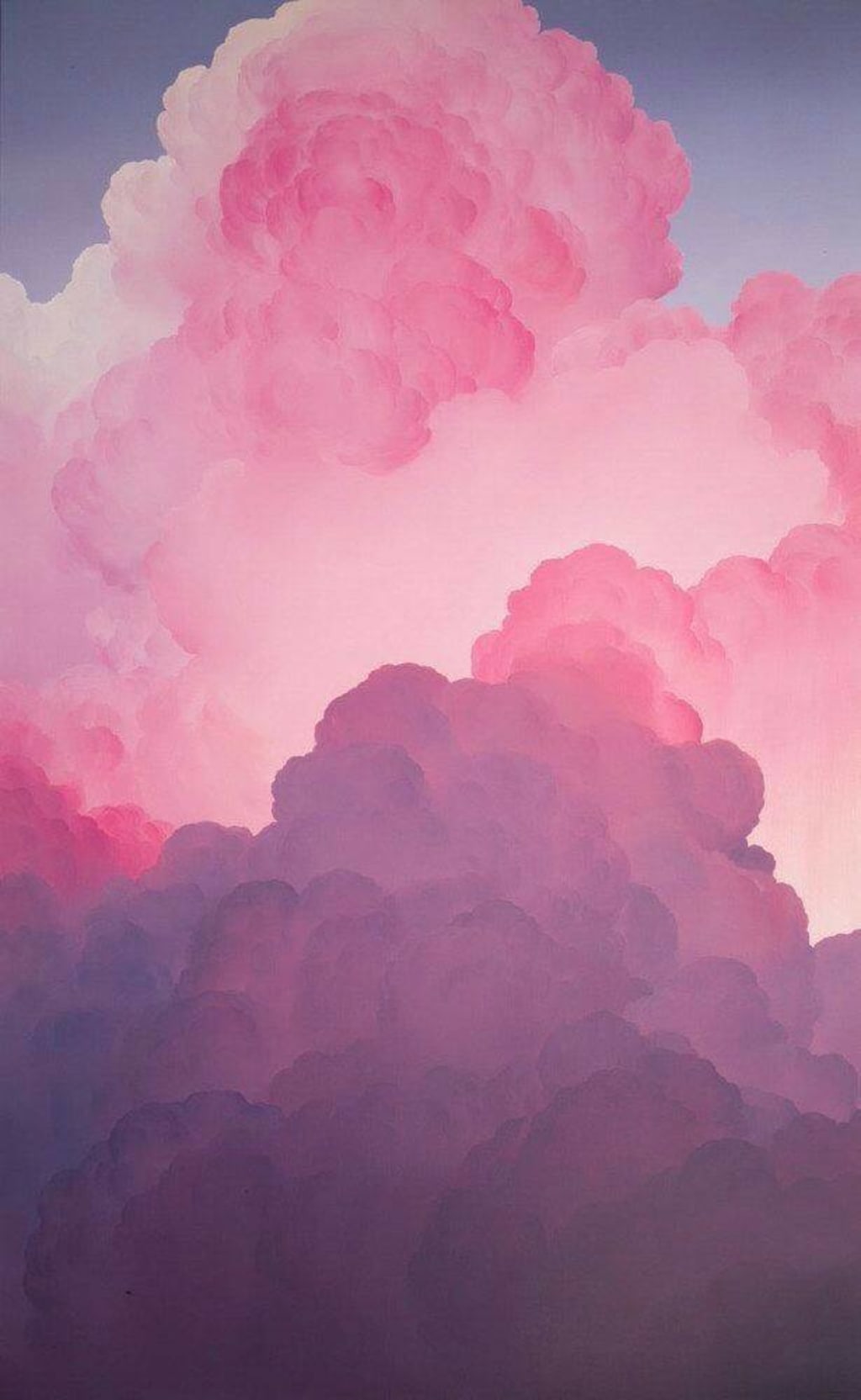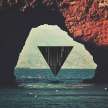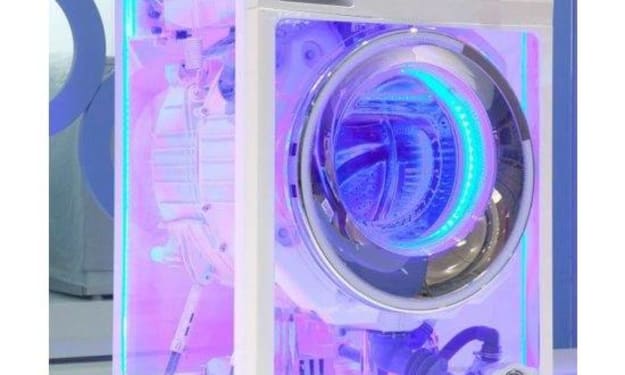Dawn of the Dugongs
Them's ain't pinnepeds.

I was in the field that morning I do remember, and my mother called from the open foyer, telling me that breakfast was ready. I always liked to leave the house earlier to prepare myself for the work of the day. When I was younger, my dad would get up in the earliest hour of the mornings to ready the horses for work. Ever since the accident, however, I found myself taking up the slack of the rope he had been forced to let slip.
I had almost finished tying the horses up outside of the corral when my mother called, announcing breakfast was ready. I had risen early that morning to prepare the horses for the work of the oncoming day. I stopped to admire the sunrise before leaving the horses to feed on the raw corn.
I had just finished watching the sun rise over the field when my mother called me from the doorway. The horses were saddled and ready for the day, enjoying the trough that buried their muzzles. I slipped down from my perch and to the ground, dropping down to the cold November ground.
My mother was a portly woman. She held her many grins within her girth. She was a wizard over the cauldron and quite frankly there could not be a more pertinent matter than a breakfast prepared by those little thick hands. The house smelled of maple and fresh potato cakes. I was careful to remove my boots before dashing across the foyer and into the kitchen. My father sat around a small wooden table alongside my two younger sisters. I took my seat at the table.
My mother was a plump woman, especially when seated directly adjacent to my ever-diminishing father. The accident had affected his appetite. He seemed to help himself to a reluctant portion of porridge which he stared at for a few long moments before lifting the spoon to his mouth.
The accident had affected my father’s appetite, but he found my mother’s breakfasts palatable. I joined him at the table. “Howdy do,” he grinned with a shining mustache.
“Indeed I do,” obliged. “I’ve already put the horses in the barn, father, and set out pails of metal for the milk.”
“Prouddaya,” he never took his eyes off the scrambled eggs. It was if they terrified him or intimidated him.
“Good morning, Father,” I uttered out of my lips. “I’ve watered the horses and watched the sun rise. How are you feeling this day?”
He stared into those eggs as they sweated beneath the rising sun. The butter began to melt and run down the edges of the bowl, pooling into a sticky mess as he waited and watched, his parched throat growing ever thicker. He picked up the little glass of water, slurping up the little iceless tumbler in big gulps.
My mama set the porridge before him, urging him to fill his languishing body with the sticky liquid. He stared grimly into the gathering pool, resting his hands in his thin lap and watching the bowl not change. He always seemed so tired, and the sacks beneath his eyes grew ever deeper and darker.
My mother was a happy woman. She brought morning to the table every day, and we gathered to watch the sun rise. She poured buttered grits into everyone’s bowls with a wooden spoon. My father stared into the melting puddle of slop, pondering. My mother glanced back and forth between the corn meal and his slack face and then back to the corn meal. “Would you like some more butter?”
My father stared into the growing pool of oatmeal, his parched throat turning to the mason jar of ice cold tea. He plunged his muzzle into the thick black brew, guzzling the bittersweet beverage down his skinny, bobbing throat. His skinny, bobbing throat grabbed at the cool water before he brought the glass jar down like a hammer into the table.
My mother watched him as he gazed into the cornmeal, concern growing in her throat. “Do you need more salt?” She asked, and he slowly turned to face her, bringing his glass to rest against the table with the weight of a glass mallet.
“I’m not hungry,” he says, rising from his chair abruptly, turning to leave. “I have things I need to take care of.”
I followed my father out to the fields, tracing his footprints through the wet morning grass before the sun withdrew the dew. “How are you feeling this day?” I asked his aching back. He stood at a slight angle, defiantly rising against his crooked spine. The accident had robbed him of his posture. He was far too proud for a cane.
He walked up to the horses and inspected the feeding trough, brushing his fingertips through the thick mane beside him. The horses lowered in respect, as if approached a distant dignitary whom they recognized but did not know. His voice seemed to calm them and prepare them. His eyes wandered across the scape with a wise distance, uneasy and clean. Those withered fingers untied the knotted cords about those knotty manes, twisting and slipping from cord to cord. He mounted the beast with a casual ease, as if his thin and broken frame knew no easier motion. I followed suit, climbing up into the mount and mounting the beast. My father’s horse slipped from the stall and into the open air, and my mount followed suit. I followed suit out to the fields, tracing his footprints through the thick grass as we cantered off into the rising horizon.
The sun rose over an endless field of thin silhouettes, expanding down from the edge of the plum-kissed sky and into the pinstriped pews of grain. Their little heads and little hands reached up before the glory of the wakening sun, rousing their dewy faces from a moonlit slumber. They stood in formation as their god chased every star from the sky and the air was filled with the vibrating warmth that precedes the day.
The cherry red rose of the breaking sky crumbled like heaving glaciers as the cresting heat broke through the thick distance of the horizon’s eclipse. Thick lips parted with splendor and rift, the cloud banks rolling softly like a tide of pink cushions dangling over the face of the atmospheric abyss. The little straw hands raised up themselves, bravely rising against the breeze that bullied. Their head-fingers touched the rustling gusts, brushing them up.
That great orb arose o’er the receding plain, grazing fiery faces with graceful blazes. The trembling stalks of wheat shook their little heads as they were roused from their slumber, stumbling up from the quiet soil and into the cold air of a quiet morning. The clouds rolled about the stratosphere, floating quietly above the light that dressed them in pink silk and cherry red.
The wiggling hands of the worshipping wheats dotted the distance in pinstriped waves. Watch them dance! The morning sun flashes and glints over their golden fingernails, crowning the dark distance in waves of electric orange. The little embers touching each head of corn rippled in dappled delight, flowing like beating oars against the surface of the cloudy depths.
The cloudy sky seemed to swirl in anticipation, awakening in languid furls before the warmth of the morning’s crowning head. The coils of wispy silk drifted around the burning glory, coated in celestial ermine, slipping apart and then together and then apart once more. My eyes follow the circular current as if scrying for the damning prophecy it promised.
My eyes grew wide and slanted as if the shutters of my blinds held the sunlight inside of them. The sky was carnelian and turquoise. The morning glow touched me with golden fingers and I turned to observe the parting grasses as we passed through the distant field.
The incessant canter of our meander drew steady in pilgrimage. I did not imagine the echoes of every man who had shared this moment. That trek beyond and before, seated around those half-taut reins, bobbing in the light that greeted us as my father bobbed in the light that came to meet him so many mornings before.
His leather jacket, coated in liquid glitter, glowed in the morning sunset from my perch. His treks had grown slower and more patient but no less steady. My readiness and youth I held tightly in my hands, calming the canter to his plodding pace in the graceful poise that we preserved. The morning was quiet, heavy with the light cloppage of hooves beneath and behind us.
The far distance, held back by no more than a horizon, grew insistent and interesting. I did not count the stopwatches inside of our pocket because he did not count the stopwatches in his pocket. There was no more than the canter of hooves beneath us, brushing gently through the stalks of barley we bore as we pondered the yonder beyond us. I almost asked him, but I didn’t because I already knew.
Grain lay behind us and grain lay before us. The chorus of horse’s foreprints bore us towards the glorious orange before us. The porous earth served to muffle the steady beat, the horse’s feet unaching in their obedient patience. That field yonder, the one that glows brightest.
That field yonder, touched by the vermillion fire that rose from the dark place below the earth. That god-thing levitated as if by some holy force, climbing up into a sky I knew I would never touch to shed a hateful eye over the plane. Blinded by the silent rapture of the illumined scores of pastures I almost sigh but I don’t sigh and there is no sound but the muffled clip-clop of the horses beneath us.
That glowing holy thing grew less semi-circular. The disc reluctant grasped at the widening sky, fighting fiercely to clear back the stars on the other side of the horizon—not that I saw them. My gaze fixed beyond and beside, perhaps at the ground around that brilliant thing but never so perfectly blinded but moreso unwilling to open my eyes so widely as to see the hateful things that arise with the morning.
Every yesterday died with every morning and locked them away, buried in that dark place that only the sun would ever climb out of. Every father looked grimly in tired jealousy as the immortal light filled his eyes with temporary brightness, but my father looked so heavy underneath the sun. His leather jacket hung from his shoulders. His posture was imperfect but defiant, as if his spine was fighting his spine. He carried us on and into the morning, leaving behind every yesterday that only was.
It was just then, though, that that black shape thing appeared, blacker than the sun behind it in unholy silhouette. That shadow-thing that dared challenge the rising sun before us, taller than death. Shapeless thing, heavy and bulbous, gut-wrenching in its uncanny horror. This black shadow that stretched itself up like a new horizon to claim the sun that had departed from it—this thing that I stared into like the sun-mirages of those who grew thirsty.
My youth stared in absent fascination, untouched by the yesterdays I have received. Those curious shapes that erupt from below slowly and boldly, unafraid of the sun blazing behind them. This moving thing, and that one too, both twisting to make new shadow-puppets that touch the things the sun had claimed with long shade no less strange and shapeless than these things that they are.
These things moving there, their colossal shape reaching into the light to block back the brilliance of this only morning. These things that were not yesterday’s sunset move, and when they move—slowly, if not for the distance perhaps—does the sun itself flicker behind them.
Those great shadows that float over the horizon, far beyond yonder to become the horizon that shifts and moves and reaches beneath the sun that seems to rise to escape them or perhaps to bathe them in glory. These things that seems to twist through the sky far beyond us, turning their mountainous bodies in lazy pride. My father’s horse comes to a halt.
“What in hell’s name is that?”
About the Creator
Eliander Black
yeah but if this platform would just let me do what I want for two damn minutes






Comments
There are no comments for this story
Be the first to respond and start the conversation.